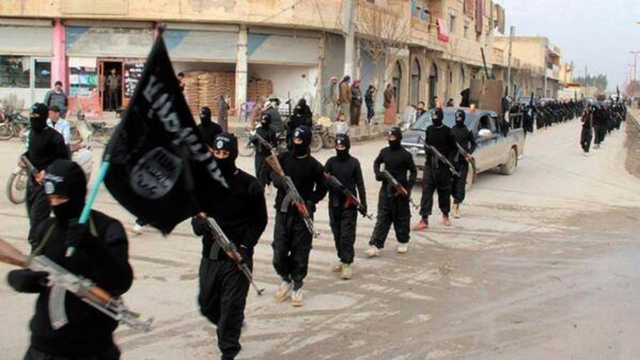The Islamic State of Iraq and the Levant (alternatively translated as Islamic State of Iraq and Syria and Islamic State of Iraq and al-Sham), abbreviated ISIL, ISIS, now officially calling itself simply the Islamic State is an unrecognized state and active jihadist militant group in Iraq and Syria.
WHAT IS ISIL?
In its self-proclaimed status as a sovereign state, it claims the territory of Iraq and Syria, with implied future claims over more of the Levant region, including Jordan, Israel, Palestine, Lebanon, Kuwait, a part of southern Turkey—including Hatay, part of the former Aleppo Vilayet of Ottoman Syria—and Cyprus.
ISIS ultimate goal is Islamic State extending across Iraq and Syria. Slide 8. http://t.co/uEFp4vSC0O pic.twitter.com/49wpdvKsGU
— ISW (@TheStudyofWar) June 11, 2014
ISIL was formed in April 2013 and grew out of al-Qaeda in Iraq (AQI). It has since been disavowed by al-Qaeda, but become one of the main jihadist groups fighting government forces in Syria and is making military gains in Iraq.
Courtesy of Global Now.
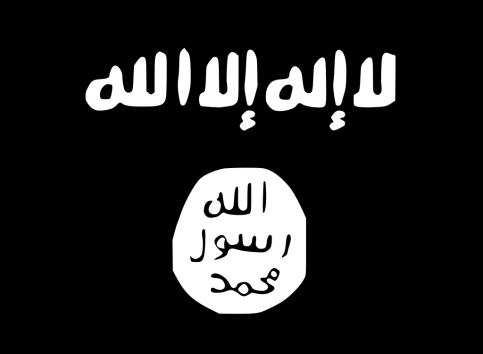
Flag of the Islamic State of Iraq and the Levant. Courtesy of Wikipedia.
ISIL’s original aim was to establish a caliphate in the Sunni-majority regions of Iraq. Following its involvement in the Syrian Civil War, this expanded to include controlling Sunni-majority areas of Syria. A caliphate was eventually proclaimed on 29 June 2014, with Abu Bakr al-Baghdadi being named as its caliph, and the group was renamed the Islamic State.
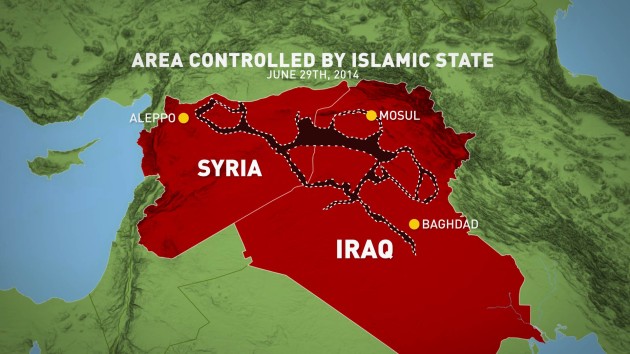
ARE THEY THE SAME AS ISIS?
Yes. The group is sometimes called ISIS – the Islamic State of Iraq and Syria, or Islamic State of Iraq and al-Sham – due to different translations of the group’s Arabic name.
In Arabic, the group is known as Al-Dawla Al-Islamiya fi al-Iraq wa al-Sham, or the Islamic State of Iraq and al-Sham. The term “al-Sham” refers to Iraq and a region stretching from southern Turkey through Syria to Egypt (also including Lebanon, Israel, the Palestinian territories and Jordan). The group’s stated goal is to restore an Islamic state, or caliphate, in this entire area.
“Iraq and Greater Syria” might be an acceptable translation, since Greater Syria also implies the entire area of the Levant.) But saying just “Iraq and Syria” suggests incorrectly that the group’s aspirations are limited to these two present-day countries. The standard English term for this broad territory is “the Levant.” Therefore, CCTV’s translation of the group’s name is the Islamic State of Iraq and the Levant, or ISIL.
WHO ARE THE LEADERS?
Its precise size is unclear but it is thought to include thousands of fighters, including many foreign jihadists. The organisation is led by Abu Bakr al-Baghdadi. Little is known about him, but it is believed he was born in Samarra, north of Baghdad, in 1971 and joined the insurgency that erupted in Iraq soon after the 2003 US-led invasion.
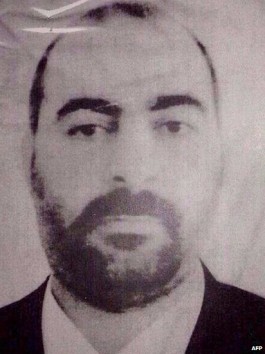
Image said to be of Abu Bakr al-Baghdadi released by Iraqi Ministry of Interior.
This rare image of Abu Bakr al-Baghdadi was released by the Iraqi interior ministry. In 2010 he emerged as the leader of al-Qaeda in Iraq, one of the groups that later became ISIL.
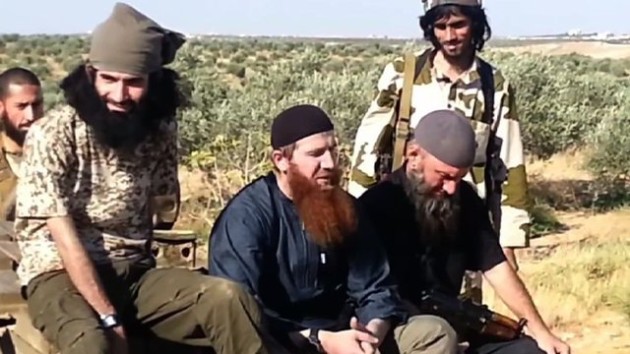
Omar al-Shishani (M), a young, red-bearded ethnic Chechen has rapidly become one of the most prominent commanders.
Omar al-Shishani, one of hundreds of Chechens who have been among the toughest jihadi fighters in Syria, has emerged as the face of the Islamic State of Iraq and the Levant, appearing frequently in its online videos – in contrast to the group’s Iraqi leader, Abu Bakr al-Baghdadi.
WHERE DID THEY COME FROM?
After the fall of Saddam Hussein, the group, then called the Islamic State in Iraq, fought U.S. forces as the Iraqi branch of al-Qaeda. Under the leadership of Abu Bakr al-Baghdadi, who now styles himself Caliph Ibrahim, the group split with al-Qaeda’s global leadership in 2013 by moving into Syria’s civil war – against the wishes of Osama bin Laden’s successor, Ayman al-Zawahri – and violently displacing al-Qaeda’s main affiliate there, the Nusra Front.
ISIL launched a major assault on Mosul, Iraq’s second-largest city, on June 10. Since then, it has advanced farther south toward Baghdad, displacing hundreds of thousands of refugees and killing hundreds of Iraqi soldiers and police.
WHO FUNDED THEM?
Supporters in the region, including those based in Jordan, Syria, and Saudi Arabia, are believed to have provided the bulk of past funding. Iran has also financed AQI, crossing sectarian lines, as Tehran saw an the U.S. military presence in the region, according to the U.S. Treasury and documents confiscated in 2006 from Iranian Revolutionary Guards operatives in northern Iraq. In early 2014, Iran offered to join the United States in offering aid to the Iraqi government to counter al-Qaida gains in Anbar province.
The bulk of ISIL’s financing, experts say, comes from sources such as smuggling, extortion, and other crime. ISIL has relied in recent years on funding and manpower from internal recruits [PDF]. Even prior to ISIS’s takeover of Mosul, Iraq’s second-largest city, in June 2014, the group from businesses small and large, netting upwards of $8 million a month, according to some estimates. After took over the city of Mosul, ISIL has become the richest terror group ever after looting 500 billion Iraqi dinars – the equivalent of $429M — from Mosul’s central bank.
More:
On March 31, 2014, ISIL published a new edition of “al-Naba” , its “annual report” covering the period of November 2012 to November 2013. The Arabic language report, over 400 pages long, was first published by the I’tisaam Media Foundation, ISIL’s main media arm, and then re-posted online by secondary sources.
ISIS ANNUAl REPORTS REVEAl A METRICS-DRIVEN MIlITARY COMMAND [PDF] –by Institution for the Study of War
U.S. Secretary of State John Kerry spoke exclusively to CCTV America about the situation in Iraq

Exclusive: Kerry calls 2003 Iraq invasion a grave mistake
U.S. Secretary of State John Kerry spoke exclusively to CCTV America about the situation in Iraq and other global issues. CCTV's Wang Guan reports with more about the interview.With reports from CCTV, Associated Press, Reuters, The Global and Mail, ISW.
 CGTN America
CGTN America